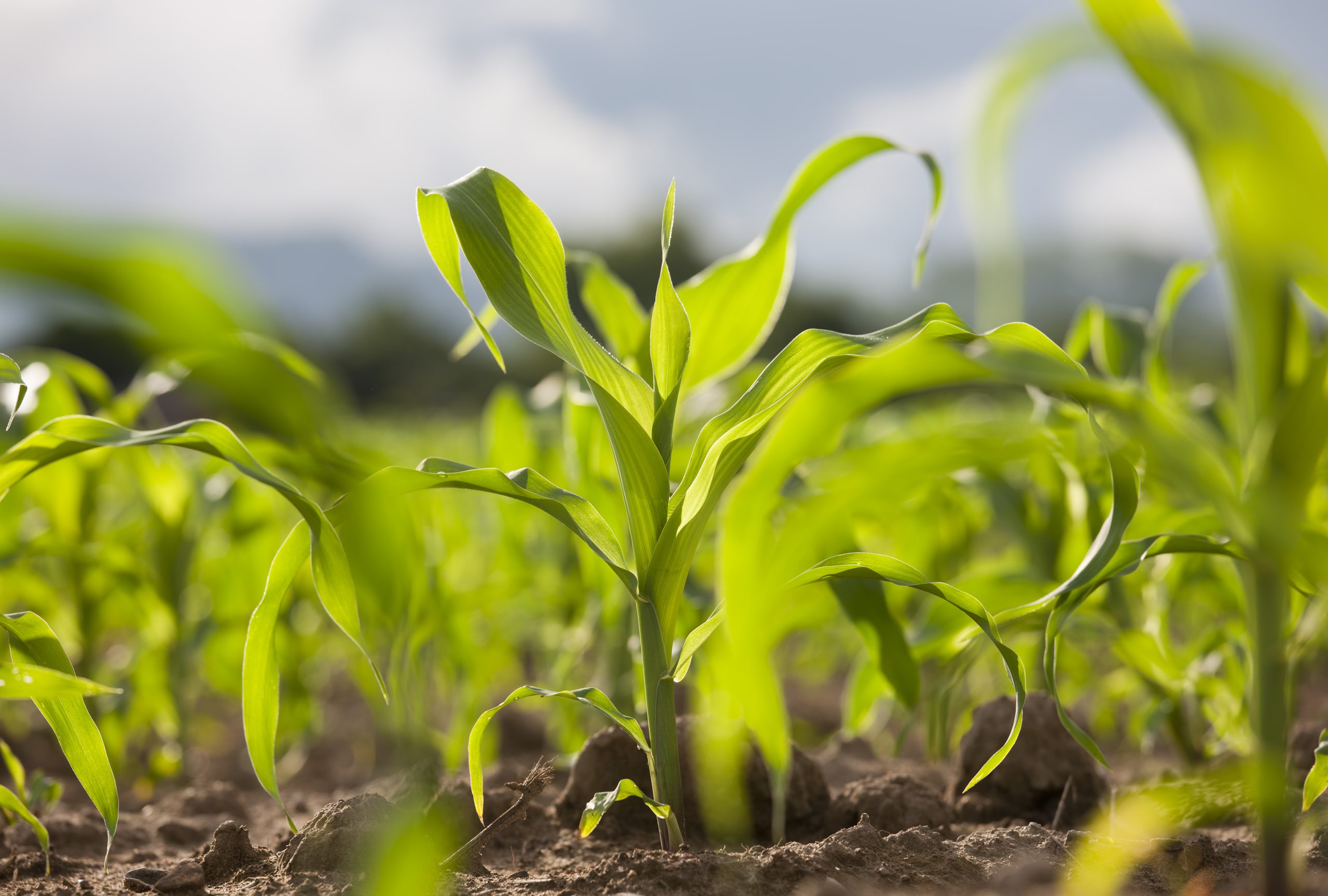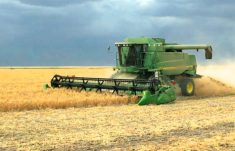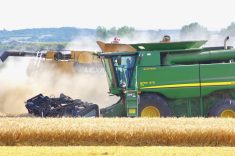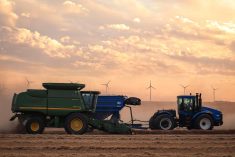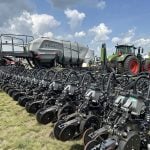The union representing locked-out workers at Regina’s Co-op Refinery Complex is warning Prairie farmers that a disruption of fuel supplies during seeding could be the “only option” it has in its labour dispute with Federated Co-operatives (FCL).
Unifor 594, whose 730-odd members at the CRC were locked out Dec. 5 after serving 48 hours’ strike notice on FCL, aired that warning in a “Dear Farmers” note posted May 13 on its website.
In its note, Unifor recapped its version of talks between the company and union, plus the recommendations from mediators appointed in February by the Saskatchewan government.
Read Also
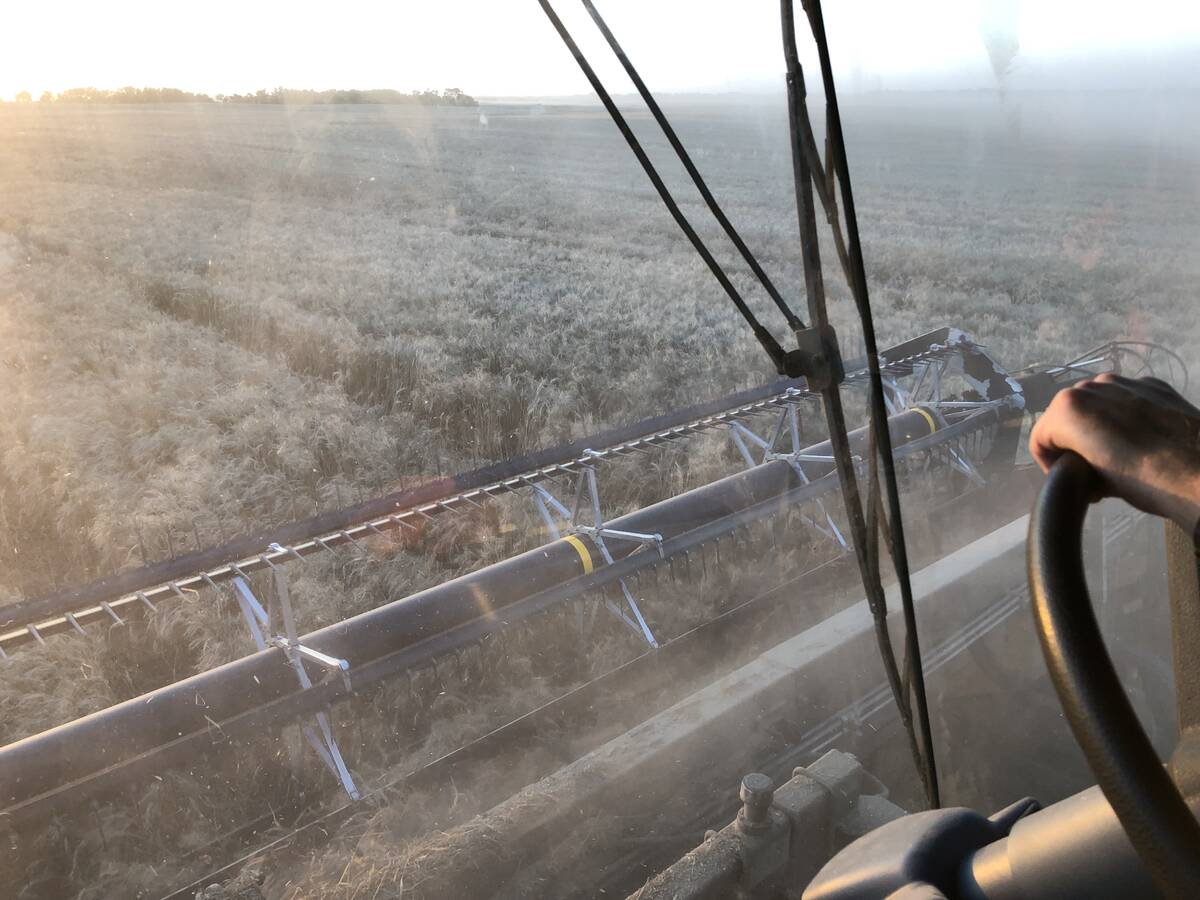
Mail strike disrupts grain sample delivery
The Canadian Grain Commission has asked farmers to consider delivering harvest samples directly to CGC offices, services centres or approved drop offs as Canada Post strike delays mail.
After the mediators’ recommendations were released in a report in March, CRC management said it was “unable to accept all aspects of the report’s recommendations in their entirety and will need to make modifications.”
“At that point, it was clear that FCL CEO Scott Banda didn’t want us back at work, even if they got what they wanted,” the union said in its May 13 note.
Unifor said it had been willing to accept the mediators’ recommendations, which it said would mean “collective losses of up to $20 million a year” for its members.
“We are in a position where disrupting the flow of fuel to farmers during seeding is the only option we have to get back to work,” Unifor said in the May 13 note. “We do not want to do that, but our options are limited when the company does not want a deal.
“We do not want the lockout and fuel production issues to stand in the way of farmers getting their seeding done but FCL doesn’t seem to care.”
Rather, the union in its note urged farmers to contact their provincial MLAs and “tell them this dispute must end.”
Specifically, the union said it wants Premier Scott Moe’s Saskatchewan Party government “to follow through and impose the mediators’ recommendations on both parties.”
Early delivery
In response to emailed questions, an FCL representative said Thursday that farmers “should not be worried by Unifor’s threat to disrupt their fuel supply from Co-op.”
FCL said its member Co-ops have “an all-time high inventory of fuel,” and are still supplying farm customers.
The company also said it’s “unaware of any disruption where our farm customers have been unable to receive the fuel they need to complete last year’s harvest or this year’s spring seeding.”
That said, Agricultural Producers Association of Saskatchewan (APAS) noted May 8 in a separate release that it was concerned about access to cardlock stations and rural fuel supplies, “after a recent picket line made it difficult to access a Co-op site in Moose Jaw this week.”
FCL, in a previous statement in late March, said it had already “proactively positioned fuel throughout our extensive fuel distribution network to be as close to our farm customers as possible, whether it be through bulk delivery or at our cardlocks.”
Co-ops have had an “active early delivery program going into spring as well as active usage of our just-in-time delivery through our facilities located across Western Canada,” FCL said Thursday.
The company added it’s tough to estimate how much fuel is still needed on-farm, given the “unique” spring with “both harvesting and seeding occurring.”
Crop progress
Saskatchewan’s agriculture department on Thursday reported spring seeding at 51 per cent complete as of May 18, matching the five-year average for the time of year. Dry conditions “allowed seeding to progress steadily” and for farmers to get into overwintered fields that were “previously too wet to combine.”
Alberta officials reported seeding at about 20.7 per cent complete on average as of May 12, Out of last fall’s unharvested acres across the province, 14 per cent of spring wheat acres, 12 per cent of barley, 29 per cent of oats and 16 per cent of canola acres remained on fields as of the same date.
Manitoba agriculture officials on Tuesday reported seeding at about 42 per cent complete at the end of the second week of May, down from the three-year average of about 55 per cent. Leftover harvest work is ongoing in some regions and the “majority” is done in the province’s southwest.
Still, APAS president Todd Lewis, in the group’s May 8 release, warned that many producers rely on cardlock stations as their primary source of fuel.
“In many cases farmers replenish their fuel supply daily and traveling long distances to avoid picket lines is not an option,” he said.
As for FCL’s outlook on the labour dispute, the company reiterated Thursday it has “made our best and final offer. Despite a major deterioration in market conditions, the offer has not been withdrawn.”
Unifor “claims they don’t have any choice other than to try and disrupt the fuel supply to farmers, but that’s not true,” FCL said. “They have a choice to return to work by accepting our best and final offer, which provides a total compensation package that exceeds the CRC’s refinery competitors.”
“Saskatchewan producers are not in a position to weigh in on or resolve the dispute between union and management,” APAS’s Lewis said of the labour dispute. “But disrupting our essential fuel supply at a critical, time-sensitive period for agriculture is not to anyone’s advantage.”-– Glacier FarmMedia Network

